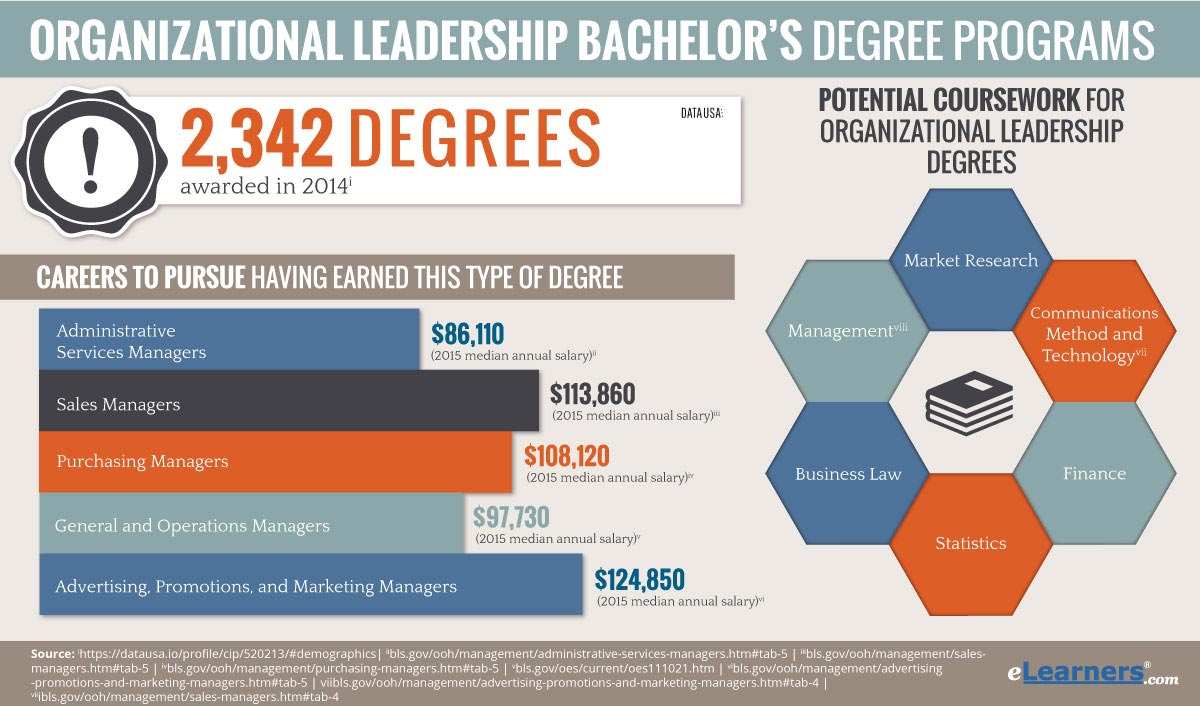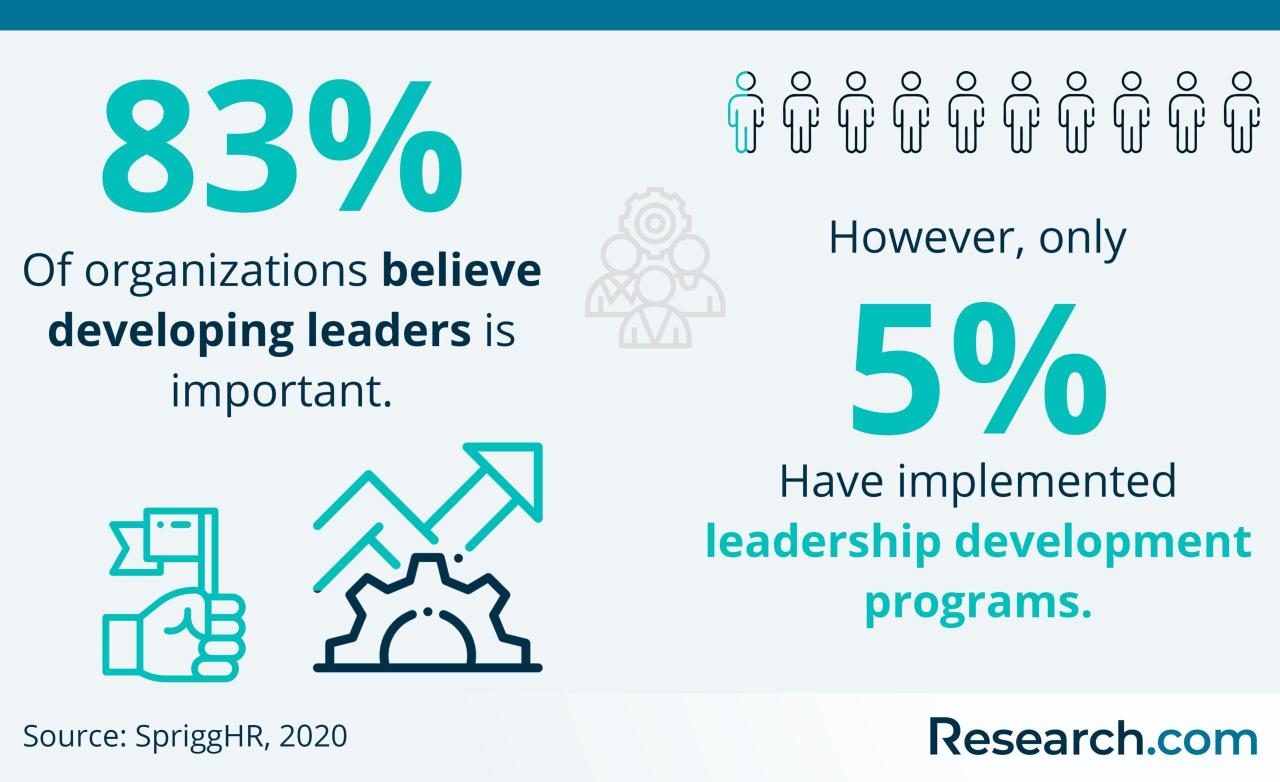Is a degree in organizational leadership worth it – Embarking on a journey of discovery, we delve into the intriguing question of whether pursuing a degree in organizational leadership is a worthwhile investment. As we navigate through this topic, we will uncover the potential career advancements, skills gained, and personal and professional growth opportunities associated with this degree, ultimately helping you make an informed decision.
Organizational leadership plays a pivotal role in driving organizational success. With the increasing complexity of the business landscape, there is a growing demand for leaders who possess the knowledge and skills to effectively manage and motivate teams, navigate challenges, and drive innovation.
A degree in organizational leadership equips individuals with the necessary foundation to excel in these leadership roles.
Career Advancement Opportunities

An organizational leadership degree opens doors to a wide range of career advancement opportunities in various industries. With a strong foundation in leadership principles, graduates are equipped to take on leadership roles and contribute to the success of organizations.
Graduates with an organizational leadership degree can pursue roles such as:
- Project Manager
- Operations Manager
- Human Resources Manager
- Training and Development Manager
- Executive Director
These roles are in high demand across industries, including:
- Business and Finance
- Healthcare
- Education
- Nonprofit
- Government
A degree in organizational leadership can lead to higher salaries and promotions. According to the U.S. Bureau of Labor Statistics, the median annual salary for management positions was $105,660 in May 2021. Graduates with an organizational leadership degree are also more likely to be promoted to leadership positions within their organizations.
Skills and Knowledge Gained

An organizational leadership degree program equips graduates with a comprehensive skillset and knowledge base essential for effective leadership in various organizational contexts. The core skills acquired through this program include:
- Communication:Graduates develop exceptional communication skills, enabling them to convey messages clearly, inspire teams, and build strong relationships with stakeholders.
- Problem-Solving:They gain analytical and critical thinking abilities, allowing them to identify and resolve complex organizational challenges effectively.
- Strategic Planning:Graduates learn to develop and implement strategic plans that align with organizational goals and drive performance.
In addition, the program provides a solid foundation in organizational leadership principles, including:
- Organizational Theory:Graduates gain an understanding of different organizational structures, cultures, and dynamics.
- Leadership Theories:They study various leadership styles, their effectiveness, and their applications in different organizational settings.
- Organizational Behavior:Graduates develop insights into human behavior within organizations, including motivation, conflict management, and group dynamics.
These skills and knowledge are essential for effective leadership in today’s dynamic and complex business environment. They empower graduates to lead teams, drive organizational success, and make a positive impact on their organizations and society.
Return on Investment (ROI)

Earning an organizational leadership degree offers a promising return on investment. Graduates can anticipate increased earning potential, career advancement, and long-term financial benefits.
According to the U.S. Bureau of Labor Statistics, individuals with a bachelor’s degree in business administration or management earn a median annual salary of $91,000, significantly higher than the national median salary of $65,660.
Salary Increase and Career Advancement
- Studies have shown that graduates with an organizational leadership degree experience an average salary increase of 10-15% within the first five years of their careers.
- They also have higher rates of promotion to managerial and executive positions, with 70% of graduates reporting career advancement within three years of graduation.
Long-Term Earning Potential
- Organizational leaders with advanced degrees, such as a Master’s or Doctorate, typically earn even higher salaries and have greater career opportunities.
- The median annual salary for individuals with a Master’s degree in organizational leadership is $125,000, while those with a Doctorate earn an average of $150,000 or more.
Industry Demand: Is A Degree In Organizational Leadership Worth It

The demand for organizational leaders is growing across various industries due to the increasing complexity and interconnectedness of organizations. These leaders are responsible for guiding their organizations through challenges, driving innovation, and ensuring operational efficiency.
Considering a degree in organizational leadership? Explore the american leadership academy news to stay updated on industry trends and best practices. A degree in organizational leadership can provide the skills and knowledge necessary to effectively lead and manage teams, making it a valuable investment for your career.
Specific sectors experiencing a high demand for organizational leaders include:
Healthcare
- With the aging population and advancements in medical technology, the healthcare industry requires leaders to manage complex healthcare systems, improve patient outcomes, and navigate regulatory changes.
- Organizational leaders with expertise in healthcare administration, nursing management, and health informatics are in high demand.
Technology
- The rapid pace of technological advancements necessitates leaders who can adapt to changing technologies, lead innovation, and manage global teams.
- Individuals with degrees in organizational leadership and a background in computer science, engineering, or business are highly sought after.
Education
- The education sector is facing challenges such as budget cuts, changing demographics, and the need for innovative teaching methods.
- Organizational leaders with experience in educational administration, curriculum development, and educational technology are in demand to navigate these challenges and improve student outcomes.
Nonprofit and Public Sector
- Nonprofit organizations and government agencies require leaders who can manage complex operations, secure funding, and navigate political and social issues.
- Individuals with degrees in organizational leadership and a background in social work, public administration, or fundraising are highly valued.
The increased demand for organizational leaders is driven by factors such as globalization, technological advancements, and the need for organizations to adapt to changing market conditions. A degree in organizational leadership provides individuals with the knowledge, skills, and experience to meet these demands and succeed in leadership roles.
Personal and Professional Growth

An organizational leadership degree offers significant opportunities for personal and professional growth. It fosters self-awareness by providing frameworks and assessments that help individuals understand their strengths, weaknesses, and leadership styles. Through coursework, students gain insights into different leadership theories and practices, enabling them to develop their own effective leadership approach.
If you’re considering a degree in organizational leadership, you may also want to explore a master’s in educational leadership and administration. This advanced degree can provide you with the skills and knowledge necessary to lead and manage educational institutions effectively.
Like organizational leadership, a master’s in educational leadership can enhance your career prospects and earning potential.
Enhanced Decision-Making Abilities
The program emphasizes critical thinking, problem-solving, and decision-making skills. Students learn to analyze complex organizational issues, gather and interpret data, and make informed decisions. By developing these abilities, graduates become more confident and effective leaders who can navigate challenges and drive organizational success.
If you’re considering a degree in organizational leadership, you might also want to explore masters in educational leadership and administration. This advanced degree can prepare you for leadership roles in educational settings, providing you with the skills and knowledge to effectively manage and lead schools and other educational institutions.
Ultimately, whether a degree in organizational leadership is worth it depends on your career goals and aspirations. It’s important to research different programs and consider your individual needs and interests before making a decision.
Networking Opportunities, Is a degree in organizational leadership worth it
Organizational leadership programs often involve collaborations with industry professionals and organizations. This provides students with access to a network of experts, potential employers, and mentors. Participation in professional organizations and attending industry events further expands networking opportunities, allowing students to build valuable connections and stay informed about industry trends.
Professional Development Resources
Many universities offer career services, leadership development programs, and alumni networks to support students and graduates. These resources provide opportunities for professional growth, such as workshops, seminars, and mentorship programs. By leveraging these resources, individuals can continue their leadership journey and advance their careers.
Outcome Summary

In conclusion, pursuing a degree in organizational leadership can be a strategic investment in your career and personal growth. By acquiring the knowledge, skills, and leadership qualities cultivated through this degree program, you position yourself to navigate the complexities of the modern workplace and make meaningful contributions to your organization.
Whether you aspire to advance your career, enhance your leadership abilities, or embark on a lifelong journey of learning and development, a degree in organizational leadership can empower you to achieve your goals.
FAQ Resource
What are the career prospects for graduates with a degree in organizational leadership?
Graduates with a degree in organizational leadership qualify for various leadership roles in diverse industries, including management, consulting, human resources, and non-profit organizations.
What skills are developed through an organizational leadership degree program?
The program cultivates essential skills such as communication, problem-solving, strategic planning, decision-making, and team building, equipping graduates to effectively lead and manage organizations.
How does an organizational leadership degree contribute to personal growth?
The program fosters self-awareness, enhances leadership style, and develops decision-making abilities, leading to increased confidence and personal effectiveness.